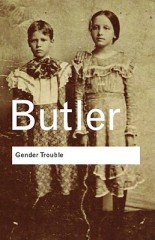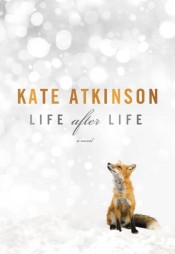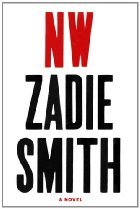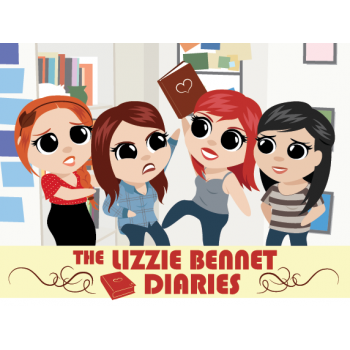Fiction is a breathing, unpredictable creature. It is created by one human being (or several) and consumed by many others (or just a few) but it certainly is something that cannot be controlled. Once it has left its nest and seen the light of day, it will take whatever shape and form it takes, and there is nothing that can predict what that will be. There are so many elements at stake (from media, to society, to historical context, to audience) that will influence it, and it is truly difficult to determine what path each creature will take. Because of the status of fiction, there are stories that become extremely popular (for whatever reason) and that begin to take a form (or, say, a reputation) that creates and feeds a different idea and that result in a different product of what it was originally planned.
It is safe to say by now that we live in an age where fandoms heavily influence and determine the path of fiction. Fandom is a blanket term I will use to describe “readership” or “viewership”, et cetera. Television shows are not only influenced by ratings (more so than by criticism and awards), they are now sometimes even funded by their targeted audience as well. The way fans respond to particular storylines will determine the direction of those (something I personally find terrifying and that I wish would stop: let’s stop killing these authors), and with that, the readings that the spectators choose to give each specific fiction product, will take a form of its own, one that will be very difficult to shake off. Not to mention the fact that the way these fictional products are created has changed as well, fanfiction is now being acquired by big publishing companies, the concept of self-publication does not sound so crazy anymore, and television shows are not only being funded by spectators but are also being distributed by a wide number of platforms (from paid services such as Netflix, to more public platforms such as Youtube).
What am I trying to get at? Think about Romeo and Juliet. What do you think about when you think about Shakespeare’s famous play? Do you think about romance or do you think about the demise of two families? Do you think performed theatre? Written text? Film? I mean, Romeo and Juliet were two twelve year olds that met at a party, fell madly in lust, married the following day and died the next. That’s the extent of the story. You can perceive its theme as one thing or the other, but when you look at the facts, you have to wonder what happened for society to take a product about adolescent infatuation and death and turn it into a tale of star crossed lovers. I have obviously heavily reduced the true themes explored in the play, but I am trying to get a point across: Romeo and Juliet is a popularly known product, and most of the time it is inaccurately perceived.
 There are a few specific cases which have always struck me particularly, because they seem to have taken a form that detours so greatly from what it is that it continues to shock me that they can be interpreted so differently. For instance, Leo Tolstoy’s Anna Karenina* is a very long and rather in depth analysis of the different forms of relationships held within Russian society. It clearly establishes the line between three different marriages (Oblonsky & Dolly, Levin & Kitty, Karenin & Anna) at the same time that it deals with how these marriages deal with extra-marital relationships (Oblonsky and his many lovers, Levin and Levin (sic) and Anna and Vronsky). Each relationship is different, it deals with social disaster and defiance differently, and each example is a further proof of the difference and the uniqueness found in the human being. The novel focuses on all of these relationships and how they both intertwine and affect each other, and it does it almost in equal parts. Vronsky and Anna’s relationship is at the center of the novel and it is clearly a contrast to the rest of the relationships in the way that it deals with something perhaps different to love. It is a tale of obsession – an unhealthy and maddening obsession. An obsession that drives both parties mad, that from the very first moment, starts to deteriorate, destroying more than it can actually take. Whether if these characters willingly and consciously defy society, and how that is explored in the novel, is another story, for another day. What is clear is that Tolstoy clearly deconstructed these relationships to attempt to understand and contrast the nature of love and infatuation, as well as the nature of compromise and commitment. However, one can’t help but thinking about how differently this story seems to be perceived by the popular masses, and one can’t help but wonder if it is all a matter of advertisement or a matter of perception. When did Vronsky and Anna’s story become a tale of cross-star lovers? When was a 900 page long novel about Russian society reduced to the passion between two of its characters? Was it the way it was advertised and sold to modern audiences? Was it the reading it obtained from certain readers, or the reading it failed to obtain from other reading circles? What makes a tale of an emotionally destructive relationship turn into a love story?
There are a few specific cases which have always struck me particularly, because they seem to have taken a form that detours so greatly from what it is that it continues to shock me that they can be interpreted so differently. For instance, Leo Tolstoy’s Anna Karenina* is a very long and rather in depth analysis of the different forms of relationships held within Russian society. It clearly establishes the line between three different marriages (Oblonsky & Dolly, Levin & Kitty, Karenin & Anna) at the same time that it deals with how these marriages deal with extra-marital relationships (Oblonsky and his many lovers, Levin and Levin (sic) and Anna and Vronsky). Each relationship is different, it deals with social disaster and defiance differently, and each example is a further proof of the difference and the uniqueness found in the human being. The novel focuses on all of these relationships and how they both intertwine and affect each other, and it does it almost in equal parts. Vronsky and Anna’s relationship is at the center of the novel and it is clearly a contrast to the rest of the relationships in the way that it deals with something perhaps different to love. It is a tale of obsession – an unhealthy and maddening obsession. An obsession that drives both parties mad, that from the very first moment, starts to deteriorate, destroying more than it can actually take. Whether if these characters willingly and consciously defy society, and how that is explored in the novel, is another story, for another day. What is clear is that Tolstoy clearly deconstructed these relationships to attempt to understand and contrast the nature of love and infatuation, as well as the nature of compromise and commitment. However, one can’t help but thinking about how differently this story seems to be perceived by the popular masses, and one can’t help but wonder if it is all a matter of advertisement or a matter of perception. When did Vronsky and Anna’s story become a tale of cross-star lovers? When was a 900 page long novel about Russian society reduced to the passion between two of its characters? Was it the way it was advertised and sold to modern audiences? Was it the reading it obtained from certain readers, or the reading it failed to obtain from other reading circles? What makes a tale of an emotionally destructive relationship turn into a love story?
 Another of the most misinterpreted stories of all time, in my most humble opinion, is Emily Brontë’s Wuthering Heights. It is the story about a broken home with very broken characters that experience all kinds of abuse and despair, where its main characters share one of the most terrifying emotionally destructive relationships ever written, and yet it continues to be perceived, by modern and older readers alike, as one of the most beautiful love stories of all time. As a young and very impressionable literature student, I was horrified when we read the novel for class and I got to know these characters – mainly Heathcliff. I had always perceived him (by what I had heard other teachers say or what I had gathered from popular culture) as the epitome of the romantic hero, the epitome of the tortured lover… when in reality Heatcliff was the clear definition of an abuser (an abused abuser, no doubt, because Brontë’s work is complex, I am not attempting to deny that) who kept destroying everyone around him, not only those who had not treated him rightly in the past, but especially those who attempted to love or help him in any way. After reading a lot of critical work on Wuthering Heights, I feel strangely weird writing such a short paragraph and such finalising sentences on one of the most complex characters (in one of the most complex works) of literature, but I believe it is necessary to acknowledge Heathcliff and Cathy’s relationship for what it was: a physically and emotionally abusive relationship, which was self-destructive, composed of two characters so self-absorbed in their own obsession for the other, that they failed to see the reality of their context. Still today Heathcliff and Cathy’s relationship continues to be sold as the story of a passionate love affair, and I find it sickening and worrying that we continue to believe in the idea of love as a painful act. What Heathcliff and Cathy felt for each other was not love, it was an unhealthy need for the other, an unhealthy need of possession. Love is about equality and respect and possession should never be a part of such equation.
Another of the most misinterpreted stories of all time, in my most humble opinion, is Emily Brontë’s Wuthering Heights. It is the story about a broken home with very broken characters that experience all kinds of abuse and despair, where its main characters share one of the most terrifying emotionally destructive relationships ever written, and yet it continues to be perceived, by modern and older readers alike, as one of the most beautiful love stories of all time. As a young and very impressionable literature student, I was horrified when we read the novel for class and I got to know these characters – mainly Heathcliff. I had always perceived him (by what I had heard other teachers say or what I had gathered from popular culture) as the epitome of the romantic hero, the epitome of the tortured lover… when in reality Heatcliff was the clear definition of an abuser (an abused abuser, no doubt, because Brontë’s work is complex, I am not attempting to deny that) who kept destroying everyone around him, not only those who had not treated him rightly in the past, but especially those who attempted to love or help him in any way. After reading a lot of critical work on Wuthering Heights, I feel strangely weird writing such a short paragraph and such finalising sentences on one of the most complex characters (in one of the most complex works) of literature, but I believe it is necessary to acknowledge Heathcliff and Cathy’s relationship for what it was: a physically and emotionally abusive relationship, which was self-destructive, composed of two characters so self-absorbed in their own obsession for the other, that they failed to see the reality of their context. Still today Heathcliff and Cathy’s relationship continues to be sold as the story of a passionate love affair, and I find it sickening and worrying that we continue to believe in the idea of love as a painful act. What Heathcliff and Cathy felt for each other was not love, it was an unhealthy need for the other, an unhealthy need of possession. Love is about equality and respect and possession should never be a part of such equation.
I believe our society has made a special effort in glorifying the pain in love to the point that the lines between love and abuse have started to get blurred. As a society we have a duty to learn to discern between extreme emotion and obsession. It seems to be a very small barrier, but we have to be able to realise what composes each. Anna Karenina and Wuthering Heights are not studies on love, but studies on how destructive an obsessive emotion – which might have stemmed from love – can turn out to be. It is true that art is what we make of it, and we might read whatever we want to read in both these pieces of literature, but I always found it particularly harming that two stories that clearly attempt to point out problematic relationships, have ended up being icons for that which they attempted to denounce.
* I would like to point out Joe Wright’s 2012 film adaptation of the novel, which was an incredible effort and which has been, I’m very sad to say, strangely overlooked by critics and viewers alike. It is an astounding deconstruction of the novel, done in a refreshingly metaphoric way, and I cannot recommend it enough. This adaptation is very objective in its portrayal of these relationships and it does not glorify the love affairs or the tragedies of its characters.
You can read Cristina’s latest article here.








